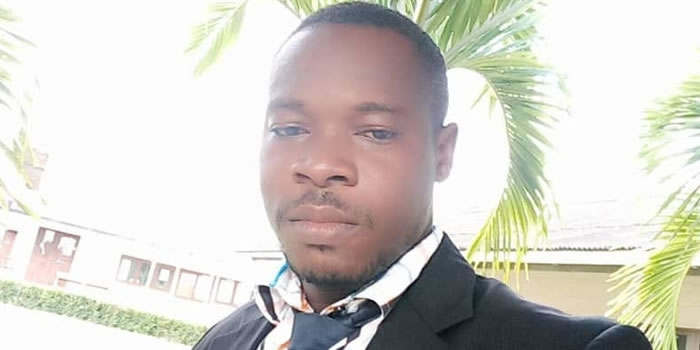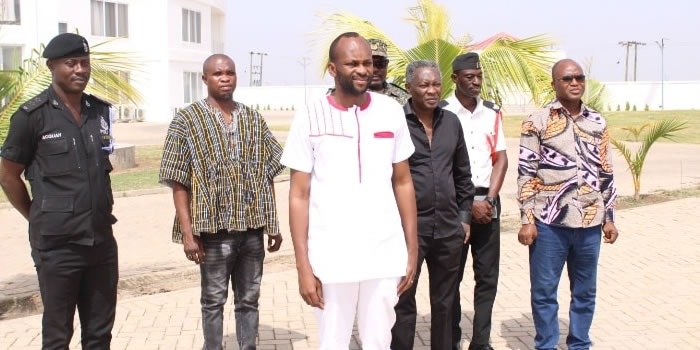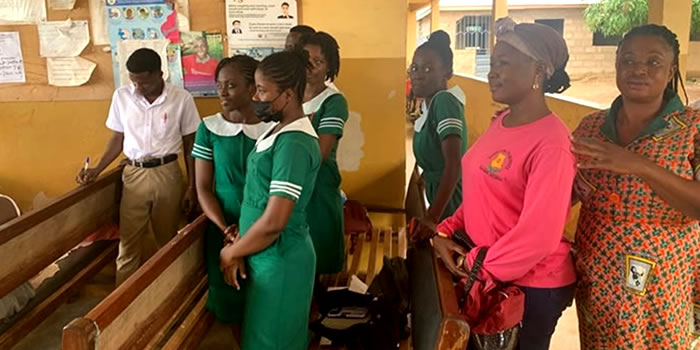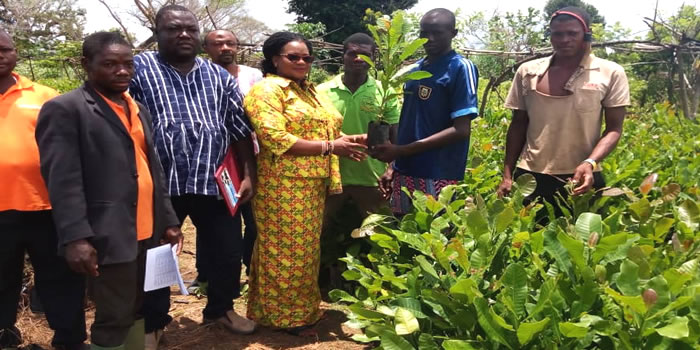

Water And Sanitation Development Boards
There are five (5) Water and Sanitation Development Boards in the district comprising those of existing water supply systems and those yet to be constructed. Those of the existing systems are Jirapa, Lambussie and Hamile.
The yet to be constructed systems include Piina and Ullo. The Jirapa system is operating quite well and with the assistance of DISCAP and has improved upon their operations especially in the area of tariff collection as the Board has been able to settle all its outstanding electricity bills it had owed to the Volta River Authority for quite some time.
DISCAP also assisted the Board with some meters and repair works on leakages. DISCAP is also in the process of installing some chlorination devices to the Jirapa water system. Several training workshops were also organized by DISCAP for members of the DWST and Water and Sanitation Development Board members.
The Board resumed the submission of its monthly and quarterly report to the Assembly from the last quarter of 2005. The Hamile system is operating with some difficulties as it experienced a breakdown due to a faulty submersible pump and also the difficulty in tariff payment and collection.
The Assembly assisted the community to repair the pump though they claim they still owe the repairers of the faulty system. The Lambussie system is facing power problem as it has not yet been hooked to the National grid.
The Board is also saddled with tariff payment and collection problem. I must admit that the DWST has not been able to do effective monitoring of the operations of the Water Boards and we promise to improve this year in our monitoring.
Membership Of The DWST
Our District Water and Sanitation Team is made up of four members including the Co-ordinator. It comprises three male and one female which include the District Feeder Roads Engineer, the District Community Development Officer, an Environment Health officer and the District Co-ordinator.
It must be pointed out that it has not been very easy going for members having to combine their departmental commitments with the activities of the DWST. This is because some of the planned DWST activities collide with unplanned or unforeseen departmental activities which come from above. We are however trying our best.
Handing Over Of Borehole Drilled And Installed By China Zhong Hao (GH. LTD).
The above borehole drilling firm was contracted on 31st March 2004 to drill 66 No. boreholes in the district. Out of a total of 83 No. holes drilled 57 No. were successful and 26 No. unsuccessful. This represents about 86.3% success rate. All the successful boreholes were fitted with hand pumps and were handed over during the period under review. All defects detected during the handing over were later rectified by the contractor.
HIPC Guinea Worm Boreholes
Geomax Resources Development Ltd and Indo-Ghana Boreholes Services Ltd were employed respectively as hydrogeological consultants and drilling contractors to construct 3 No. boreholes in three communities in the Yagha area which is a guinea worm endemic spot in the district. The drilling for all the three point sources were successful except that the boreholes and yet to be installed.
The Consultants submitted a progress reported to the Assembly dated 31st May 2005 which was received at our end on 21st June 2005. The report contained the Scope of Works, Site Meeting Minutes, letters of correspondences between the consultant and contractor. Test Pumping and the results of Water Quality Test.
Jirapa Small Town Water Supply Project
The Assembly has received the no objection from the World bank for the award of the contract and the recommended contractor has been invited for acceptance and signing of the contract with the Assembly scheduled to take place on 13th February 2006 for work to begin.
The Community has fully paid their 5% contribution as they were assisted with HIPC funds through the Ministry of Local Government and Rural Development. The Assembly has also made budgetary provision to meet its 5% contribution to enable the project take off smoothly.
Sanitation And Hygiene Activities By The DA
The District Assembly has decided that the construction of any new school block in the district should include toilet and urinal facilities. In this light all school blocks constructed during the period under review included KVIP toilets and urinals.
Planned Activities For 2006
Under the Community Based Rural Development Project (CBRDP) the Assembly is to procure 15 No boreholes whilst the Assembly has budgeted from its share of the District Assemblies Common Fund to procure 10 No. boreholes. It is therefore planed to drill a total of 25 No. boreholes which is far short of our original projection of about 70 point sources.
It is also intended that 600 household toilets would be constructed this year and 6 institutional latrines. The Assembly has also made budgetary provision to procure sanitary equipment for the Environmental Health unit to facilitate their work. The Unit is also to step up its house to house inspection and to sensitize the people on hygiene and sanitation.
Water Supply
The current water supply situation in the district has improved remarkably over the 2003 situation. The coverage of 65% in 2003 has increased significantly to 84% as at the close of year 2005. This is however theoretical as the situation on the ground portrays a different picture. This is because, the rapid population growth and the scattered settlement pattern does not really give the picture of one (1) borehole to three hundred (300) people. Therefore, people still suffer to get potable water in the District.
The potable water supply facilities included pipe systems, boreholes with pumps and hand-dug wells with pumps and hand-dug wells without pump. In spite of the seemingly positive picture, a number of communities do not have potable water supply and resort to unprotected sources. Other communities have recorded increased population figures over time making the existing facilities not adequate.
Environmental Health And Sanitation
Poor sanitation continues to be a major problem in the District. The pace of providing facilities for the disposal of solid and liquid waste in the District appears to be lagging behind population growth, especially in the major towns of Jirapa, Hamile Piina and Lambussie. Inadequate funds and inappropriately trained personnel (Environmental Health Officers) have not permitted the District Assembly and its development partners over the years to provide enough sanitation facilities and services to the people.
Under the National Community Water and Sanitation Programme currently in progress it is proposed to increase access to sanitation facilities. It is also proposed to sensitize households in the District to construct household sanitation facilities in the district.
Date Created : 11/14/2017 7:44:08 AM












 facebook
facebook
 twitter
twitter
 Youtube
Youtube
 +233 593 831 280
+233 593 831 280 0800 430 430
0800 430 430 GPS: GE-231-4383
GPS: GE-231-4383 info@ghanadistricts.com
info@ghanadistricts.com Box GP1044, Accra, Ghana
Box GP1044, Accra, Ghana